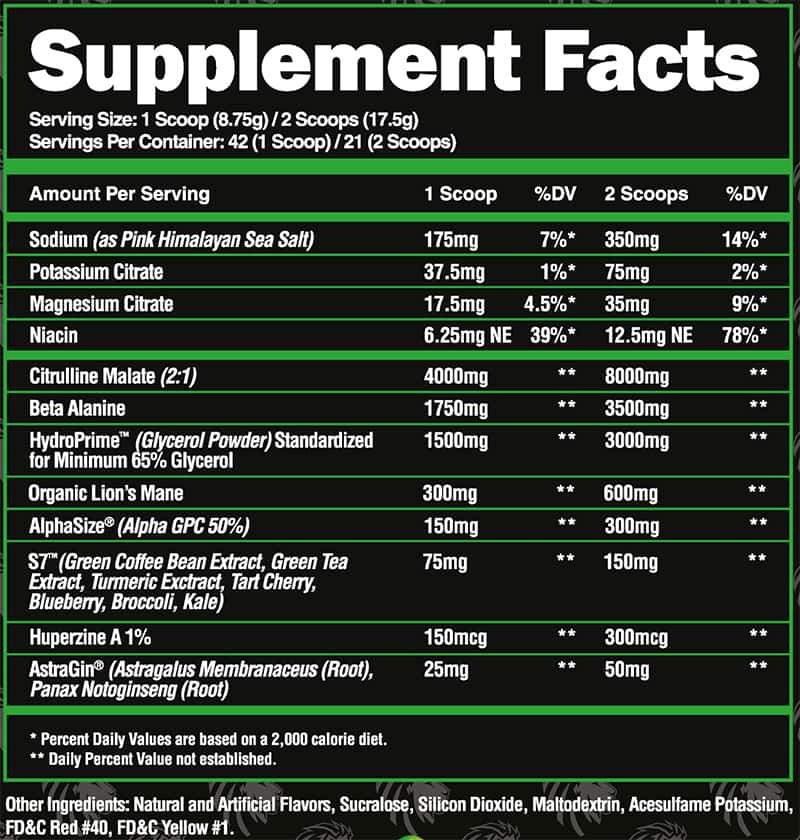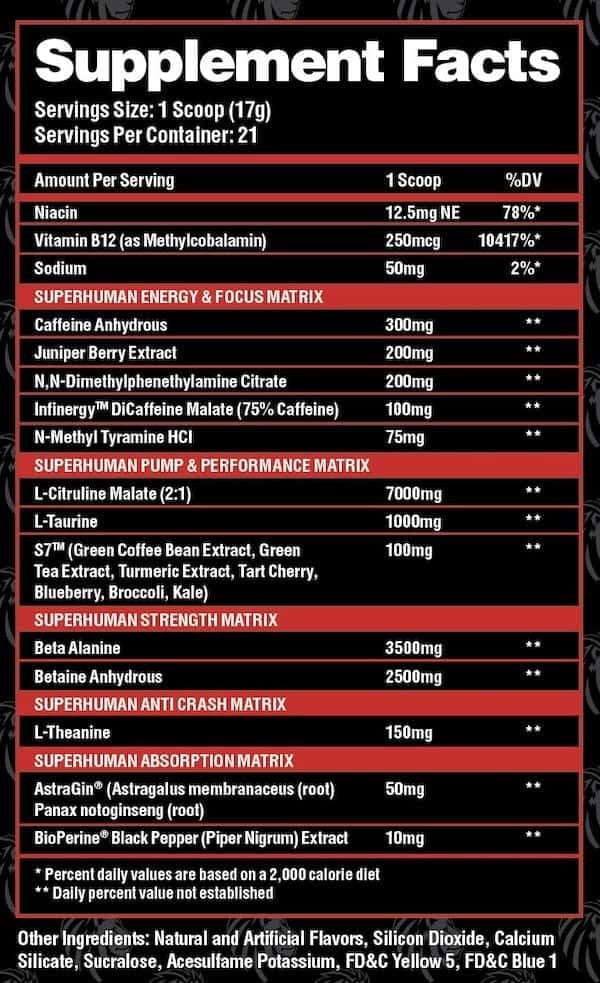Secrets to Sustainable Weight Loss: Key Strategies for Effective and Long-Lasting Weight Loss

To achieve sustainable weight loss, people need to make changes that are both realistic and enjoyable - including healthful ones!
Attempting to lose too much weight too quickly can be counterproductive, leaving you feeling tired and sick.
Don't feel pressured into going gluten-free or vegan; simply cut back on carbohydrates while eating plenty of nutrient-rich foods is effective at long-term weight loss.
Why Losing Weight Fast Isn't the Best Goal
Even a myth that explains how fast shedding will help you lose weight can be incredibly detrimental to your weight loss efforts. Typically, people who have a low calorie diet are unable to keep up with the changes in body weight unless a diet changes drastically. The importance of preserving lean muscle can play key roles in the metabolic process. “Sugar Shock and Beyond is a Sugar Shock book by Connie Bennett.

Intuitive Eating
Eating intuitively means forgoing diet mentality and instead trusting in the natural hunger and satiety cues of your body. Focus on how food makes you feel rather than its content or calories count when making decisions about what to eat.
Though research into Interpersonal Ecology (IE) is still relatively young, studies have demonstrated that people who practice it tend to have greater self-trust for themselves when it comes to their bodies and are less likely to engage in behaviors like overeating and bingeing. Furthermore, practicing IE helps individuals learn how to express emotions without using food as an emotional crutch and appreciate themselves no matter their size.
intuitive eaters tend to select foods that both satisfy their health and tastebuds, yet are still enjoyable, like cookies and cake. At the same time, however, they make sure their bodies receive enough protein, fiber and fat in their diet to meet their daily requirements.
An essential aspect of Interpersonal Eating therapy (IE) is learning how to identify what triggers overeating or under eating, including emotions such as stress and cravings as well as social pressures - often the same factors which lead to dieting cycle or bingeing episodes. By understanding your triggers for behavior change, you can take steps to address it and adjust accordingly.
Avoiding diet and binge patterns may seem challenging, but it's worth persevering - research indicates that long-term weight loss success increases when individuals can regain control of their relationship with food. An intuitive eating coach may help these individuals understand and apply these principles more easily.
Sustainable weight loss will often require lifestyle adjustments; working with a registered dietitian is often helpful in developing and implementing healthy habits to support your goals. They can recommend nutritious snacks and meals, provide guidance with cooking and meal planning, support you as you make necessary lifestyle changes necessary to reach them, as well as assist in finding strategies to manage cravings or stress such as journaling, meditation or consulting a friend or therapist.
What's the best diet for weight loss?
How can I lose weight without losing weight? The question is not always unanswerable and sometimes suggests a less ideal solution. Instead of adopting a “fad” diet, people who have lost weight tend to adopt dietary changes. Choosing to eliminate unhealthy foods from your diet for at least a few days or even years can be a very beneficial exercise.

Enjoy the Food You Eat
We have so many food choices that it makes us less likely to develop long-lasting healthier habits. Try new fruits and veggies. Learn how to prepare new dishes that provide variety and flavor. Add herbs and veggies.
What's the healthiest diet?
No diet has been considered “healthier”. However several eating styles have been studied and evaluated for optimal health by experts, the most common type is traditional food consumed by many people in many cultures. Generally, they are plant-based diets, emphasise healthy fats, no simple sugar and little sodium and prefer natural food over the highly processed foods that are typical of much western diets. The Mediterranean diet is based on the foods that have been gathered from different cultures in the Mediterranean Ocean.
Eat Slowly
I help clients choose foods they like, taste each piece of food in our mouth, and eat carefully. I advise the patient to chew slowly.

Enjoy healthy foods
The most important thing to promoting reducing weight is to reduce the amount of calories you consume. Increasing your fat intake shouldn't mean eliminating tastes, satisfaction, or ease in meal preparation. Getting a healthy diet can help reduce fat and cholesterol. Try different things to achieve a goal without losing taste or nutrients. Start losing pounds with the following tips:
Reduce Your Intake of Ultra-Processed Carbs and Sweets
Several recent research studies show that eating is crucial to weight gain compared to smoking and alcohol consumption[3. Weight may fall quickly as we get better at improving food intake. The easiest way to lose weight is to reduce the consumption of glucose and quickly metabolize carbohydrates. “You need to eliminate high-glycemic foods, such as sugar-filled snacks, refined sugar and soft drinks. When you are not eating fried French toast or ice-crumb, you'll lose weight."
Pump Up Your Protein
In addition, eating protein may lower your appetite and decrease muscle gain. The daily intake of 1-2 g protein in your diet helps control weight gain, calorie intake, and overall health, the doctor said. If I want to get better protein I need one serving. Albertson arose from the fact that people over the age of 50 need more protein per kilogram than men or young women (who are required about 8 mg protein per kilogram per day).
Limit High-Glycemic Carbohydrate Foods
The glycemic index measures how quickly the blood pressure rises after the consumption of a carbohydrate. Eating high carbohydrate food like white potatoes and cured bread may cause an increase in blood sugar.
Try to Eat Mainly Whole, Minimally Processed Foods
The various processing procedures are the main ingredient which make the processed product taste great and keeps people wanting more. They usually contain a high proportion of sugar, fat and salt. It is believed that people can take up to 1,000 more calories a day if they are given unlimited amounts of dietary fiber.
Don't Skip Meals
We want to keep living as much as our body can. If the body is not fed enough calories to survive, it can do things that it wants. Our body will know if foods have higher energy levels, and they will make us crave more.
Don't Forget the Weights
“Keep up to date with the weightlifting schedule and keep it on the schedule. Using medium to heavy weights — three or four sets of 10 and 15, and weight exercises that challenge you — increases your muscular mass.
Get active, stay active
Although it's easy to lose excess weight, exercising regularly can help. Exercise can reduce fat and reduce hunger. Exercise can improve your mood, improve heart function and lower your systolic pressure. Exercise is a good exercise method for losing weight. Research shows weight-loss is achieved when people are regularly active. How much calories you burn is based on your daily activity.
Meditation
Meditation is an effective form of mental relaxation that involves focusing your attention on an object, image or mantra (repeated words that help the practitioner focus). Through techniques like deep breathing and freeing one's mind from distractions and worries, it helps reduce stress-inducing thoughts while increasing focus.
Meditation can be used as an adjunct to weight loss programs by helping address the factors contributing to one's struggle with obesity. Furthermore, it provides an effective means of relieving stress and improving physical health; which could in turn lead to improved eating habits as a result.
Mindful eating practices can help combat overeating and poor diet by teaching individuals to recognize when they are hungry or full, reduce cravings, and make better food decisions by helping to increase cognitive processing capabilities. They may also assist those struggling with emotional eating or binge eating to learn to stop before snacking on anything - this may prove especially useful for emotional eaters or binge eaters.
Meditation can also help control blood pressure and other cardiovascular issues. Studies have demonstrated that meditators tend to have lower blood pressure and heart rates - this factor should be particularly considered by individuals trying to lose weight since high cholesterol and blood pressure may impede their attempts.
Meditation has many other health benefits in addition to improving heart health, including helping reduce visceral fat storage associated with metabolic syndrome, which has been linked to heart disease, stroke, and diabetes. A study by Cedars-Sinai Research Institute discovered that meditation reduced three primary markers of metabolic syndrome such as insulin resistance, triglycerides and glucose.
Meditation can be an invaluable asset to those looking to improve their health and weight management, but it may also serve as an effective method for alleviating chronic pain. A recent study demonstrated how regular meditation practice could decrease pain perception - making this practice even more helpful for people suffering from medical conditions like heart disease or cancer.
Frequently Asked Questions:
What is the 1 rule to losing weight?
The number one rule to losing weight is consistently maintaining a calorie deficit, which means consuming fewer calories than your body expends. This can be achieved through a combination of a balanced diet and regular physical activity. By burning more calories than you consume, your body will utilize stored energy (fat) to meet its needs, leading to weight loss over time.
How do I get serious about losing weight?
Goal Setting
1. Determine the specific weight loss goal: Aim to lose a reasonable amount of weight, such as 1-2 pounds per week. For example, if the individual wants to lose 20 pounds, set a goal of achieving this within 10-20 weeks.
2. Break down the overall goal into smaller, achievable milestones, such as losing 5 pounds in a month.
Workout Routine
1. Schedule workouts: Aim for at least 30 minutes of exercise, 5 days a week. This can include a mix of strength training and cardiovascular exercise.
2. Cardiovascular exercise: Incorporate activities such as brisk walking, jogging, swimming, or cycling for at least 150 minutes per week.
3. Strength training: Include full-body exercises like squats, lunges, push-ups, and planks at least twice a week to build muscle and boost metabolism.
4. Flexibility and recovery: Add stretching and yoga sessions to improve flexibility and aid muscle recovery.
Nutrition
1. Track daily calorie intake: Use a food diary or an app to track daily calorie consumption, aiming for a calorie deficit of 500-1,000 calories per day to lose 1-2 pounds per week.
2. Balanced meals: Plan meals with a balance of lean proteins, healthy fats, and complex carbohydrates. Fill half your plate with vegetables, a quarter with lean protein, and a quarter with whole grains.
3. Eliminate processed foods: Avoid foods high in added sugars, unhealthy fats, and excessive sodium.
4. Stay hydrated: Drink at least 8 cups of water per day to support digestion, metabolism, and overall health.
5. Practice portion control: Use smaller plates and avoid second servings to help control portion sizes.
Lifestyle Changes
- Sleep: Aim for 7-9 hours of quality sleep per night to support weight loss efforts and overall health.
- Manage stress: Incorporate stress management techniques such as meditation, deep breathing exercises, and hobbies that help relax the mind and body.
- Build a support system: Connect with friends, family, or join a weight loss support group to stay accountable and motivated throughout the weight loss journey.
Remember, consistency is key. Stick to the plan and make adjustments as needed based on progress and individual needs. Celebrate small victories and maintain a positive attitude to achieve sustainable weight loss success.
How can I lose 2 pounds a week?
We understand the importance of creating a comprehensive and sustainable diet and exercise plan that helps individuals lose 2 pounds per week. The first step is to identify the individual's current weight, body fat percentage, and target weight.
Based on this information, you can determine the daily caloric intake needed to achieve the desired weight loss. To do this, you will need to calculate your basal metabolic rate (BMR) which is the number of calories your body needs just to function while at rest. This can be done using an online calculator or by multiplying your weight in kilograms by 24. Once you have determined your BMR, subtract 500-1000 calories from it for safe and effective weight loss.
In addition to calculating caloric intake, it is important to determine an appropriate macronutrient split [protein, fats, and carbs]. Protein should make up 25-30% of total daily calories while carbohydrates should make up 45-65%. Fats should make up 20-35% of total daily calories.
For exercise, create a workout plan that incorporates both cardio and strength training. Cardio exercises such as running or cycling are great for burning calories quickly while strength training exercises such as squats or pushups help build muscle mass which increases metabolism over time. Aim for 3-5 days of exercise per week with a mix of both cardio and strength training exercises.
It is also important to consider mindset shifts needed to succeed in achieving long term goals like losing weight. Staying motivated throughout the journey is key so set realistic goals that are achievable within a certain timeframe and reward yourself when you reach them! Additionally, surround yourself with positive people who will support you on your journey and remind yourself why you started in the first place when times get tough.
Finally, include some delicious and nutritious meal ideas that will add variety and help with weight loss. Start off each day with a high protein breakfast such as eggs or oatmeal topped with fruit or nuts for added flavor! For lunch or dinner try lean proteins like chicken breast or fish paired with roasted veggies like broccoli or Brussels sprouts for fiber-filled nutrition! Snacks like yogurt with fresh berries or hummus with carrots are also great options throughout the day!
How to lose 20 pounds in a month?
We want to emphasize that losing 20 pounds in just a month is an aggressive goal and may not be safe or sustainable. However, I can provide guidance on how to lose weight effectively and healthily.
Nutrition Plan
- Identify dietary restrictions: Note any allergies or intolerances to ensure the meal plan is tailored to individual needs.
- Calculate daily calorie intake: To lose weight, aim for a calorie deficit of 500-1000 calories per day.
- Balance macronutrients: Consume 25-30% protein, 45-65% carbohydrates, and 20-35% fats.
- Eat nutrient-dense foods: Include lean proteins, whole grains, fruits, vegetables, and healthy fats.
- Practice portion control: Use smaller plates and avoid second servings.
Workout Routine
- Cardiovascular exercise: Aim for 150-300 minutes of moderate-intensity cardio per week, such as brisk walking, jogging, or swimming.
- Strength training: Incorporate full-body exercises like squats, lunges, push-ups, and planks at least twice a week.
- Flexibility and recovery: Include stretching and yoga sessions to improve flexibility and aid muscle recovery.
Motivation Tips
- Track progress: Use a journal or app to monitor weight loss, exercise, and nutrition.
- Set realistic goals: Break down the overall goal into smaller, achievable milestones.
- Celebrate milestones: Reward yourself when reaching milestones to stay motivated.
Resources and Equipment
- Invest in a quality pair of workout shoes for comfort and support during exercise.
- Purchase a set of resistance bands or dumbbells for strength training at home.
- Use fitness apps or online resources for workout ideas and tracking progress.
Remember, consistency and patience are key. Adjust the plan as needed based on progress and individual needs. Aim for long-term, sustainable weight loss rather than rapid, short-term results.
How to lose belly fat fast?
Belly fat is a common problem for many people, but it can be difficult to get rid of. It's important to understand the science behind why belly fat accumulates in order to effectively reduce it. Belly fat is caused by a combination of factors, including genetics, hormones, and lifestyle choices. Common myths about belly fat include that it's caused by eating too much sugar or carbs, or that spot reduction exercises are effective for reducing belly fat. In reality, the only way to lose belly fat is through a combination of healthy eating habits and regular exercise.
If you're looking to lose belly fat quickly and effectively, there are several methods you can use. Diet changes are an important part of any weight loss plan, as they help you reduce your caloric intake while still getting all the essential nutrients your body needs. Eating more lean proteins and whole grains can help you feel fuller longer while cutting down on unhealthy fats and processed foods. High-intensity interval training (HIIT) is another great way to burn calories quickly while also building muscle mass. HIIT workouts involve short bursts of intense activity followed by periods of rest; this type of exercise helps increase your metabolism so you burn more calories even after your workout ends. Meditation can also be beneficial for reducing stress levels which can contribute to weight gain around the midsection.
In addition to diet changes and exercise, there are other strategies you can use to stay motivated when trying to lose belly fat. Setting realistic goals that are achievable in a reasonable amount of time will help keep you on track with your progress. Tracking your progress with photos or measurements will help keep you motivated as well; seeing tangible results from all your hard work will make it easier for you to stay focused on achieving your goals. Finally, don't forget that losing weight takes time; don't give up if it doesn't happen overnight!











